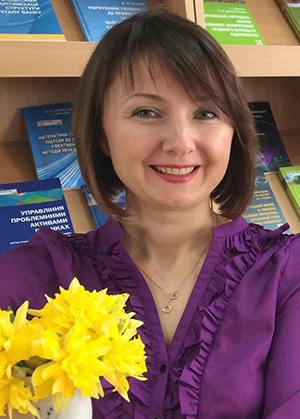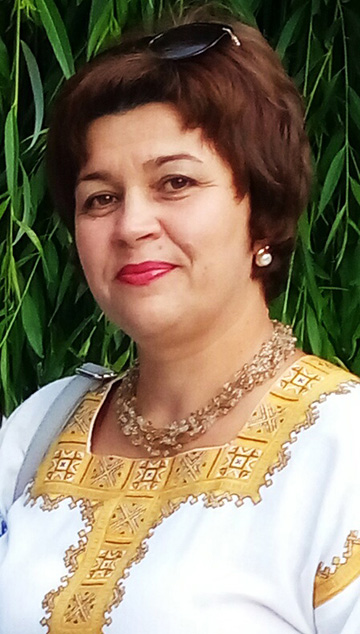|
 UDC 336.5:364.2; JEL H10, H41, H50
UDC 336.5:364.2; JEL H10, H41, H50
Zherebylo, I., & Voznyak, H. (2021). Publichni finansy v postulatakh ekonomichnykh shkil: henezys teoriy [Public finance in postulates of economic schools: genesis of theories]. In Sotsial'no-ekonomichni problemy suchasnoho periodu Ukrayiny [Socio-Economic Problems of the Modern Period of Ukraine]: Vol. 152 (6) (pp. 9-16). DOI: https://doi.org/10.36818/2071-4653-2021-6-2. [in Ukrainian].
Sources: 19
Authors
Zherebylo Iryna VladyslavivnaPh.D. of Philosophy, Associate Professor
Director of the Lviv Academic Institute of University of Banking; Professor of the Department of management and social security of the University of Banking
Contacts:  zherebіlo@gmail.com, zherebіlo@gmail.com,  referent@libs.ubs.edu.ua referent@libs.ubs.edu.ua
Webpages:     

Voznyak Halyna VasylivnaDoctor of Economics, Professor
Leading Researcher of the Department of regional financial policy of the Dolishniy Institute of Regional Research of NAS of Ukraine
Contacts:  gvoznyak@gmail.com gvoznyak@gmail.com
Webpages:         
ResumeThe article aims to study the genesis of public finance theories in the context of social development due to the need to determine the role of the state in providing social services and the efficiency and quality of public goods. The need for research is generated by two aspects: the dependence of the state and vector of public finance development on the historical and political conditions of state development; the need to develop tools, institutions, and procedures in the context of expanding state participation in the provision of social services to the population. Theoretical aspects of determining public and private goods and their place in the theory of public finance are substantiated. The public and private goods are compared and their essential characteristics are revealed. The key features of public goods (non-competitiveness, non-exclusion, indivisibility) are highlighted. The article addresses the peculiarities of scientific approaches to the issue of financing the manufacture and providing public goods to representatives of various scientific schools and trends (classical political economy, fiscal exchange models, theory of economic sociodynamics, libertarian theory, institutional economic theory, new classical macroeconomics, etc). The experience of developed countries in the historical context clearly indicates that despite the diversity and differences of national economic models focusing on different schools of economic theory, there is a constant gradual strengthening of the role of the state in social development. Emphasis is placed on changing the role of the state in modern conditions of forming new priorities and implementing the Sustainable Development Goals that ensure the development of human capital and provide the population with quality public goods. The article substantiates that in modern conditions, the issues of social services efficiency as a guarantee of human capital development, their maximum proximity to consumers, the role of the state and public administration system in the social sphere, and balancing the public finance system in ensuring social and economic progress are increasingly relevant.
Keywords:public finances, social sphere, public goods, private goods, budget expenditures, budget revenuespublic finances, social sphere, public goods, private goods, budget expenditures, budget revenues
References- Konstantyuk, N. (2014). Hnoseolohichnyy analiz suspil’nykh ta pryvatnykh blah v teoriyi publichnykh finansiv [Epistemological analysis of public and private goods in the theory of public finance]. Sotsial’no-ekonomichni problemy i derzhava – Socio-economic problems and the state, 1(10), 110-119. Retrieved from http://sepd.tntu.edu.ua/images/stories/pdf/2014/14knitpf.pdf [in Ukrainian].
- Expanding the Measure of Wealth: indicators of environmentally sustainable development (1997). Washington: The World Bank. Retrieved from http://documents.worldbank.org/curated/en/555261468765258502/Expanding-the-measure-ofwealth-indicators-of-environmentally-sustainable-development
- Pyshchulina, O., Yurochko, T., Mishchenko, M., & Zhalilo, Ya. (2018). Rozvytok lyuds’koho kapitalu: na shlyakhu do yakisnykh reform [Human capital development: on the way to quality reforms]. Kyiv: Testament. Razumkov Center: Website. Retrieved from https://razumkov.org.ua/uploads/article/2018_LUD_KAPITAL.pdf [in Ukrainian].
- Svitovyy bank: Investytsiyi v lyuds’kyy kapital – holovnyy priorytet dlya Ukrayiny v umovakh pandemiyi [World Bank: Investing in human capital is a top priority for Ukraine in a pandemic] (2020, Sep 16). The World Bank: Website. Retrieved from https://www.worldbank.org/uk/news/press-release/2020/09/16/investing-in-human-capital-a-top-priority-for-ukraine-amid-pandemic-says-world-bank [in Ukrainian].
- Part 1. A Symposium on Public Finance in the History of Economic Thought (2020). In C. Silvant, & J. S. J. Arrupe (Eds). Research in the history of economic thought and methodology. Retrieved from http://diposit.ub.edu/dspace/bitstream/2445/152991/1/696911.pdf
- Derlytsya, A. (2020). Dyverhentsiya finansovoyi nauky u konteksti henezysu teoriyi suspil’nykh finansiv [Divergence of financial science in the context of the genesis of the theory of public finance]. Svit finansiv – World of finance, 1(62), 33-48. DOI: https://doi.org/10.35774/sf2020.01.033 [in Ukrainian].
- Bastable, Ch. F. (2016). Obshchestvennyye finansy [Public finances]. Kharkiv: Vivat. [in Russian].
- Samuelson, P. (1992). Ekonomika [Economics]: in 2 vols. Algon. [in Russian].
- Khalsmann, J. G. (1999). Ekonomicheskaya nauka i neoklassitsizm [Economics and neoclassicism]. Kvartal’nyy zhurnal avstriyskoy shkoly ekonomicheskoy nauki – Quarterly Journal of the Austrian School of Economics, 4, 3-20. [in Russian].
- Musgrave, R., & Peacock, A. (1958). Classics in the theory of public finance. London: Macmillan. DOI: https://doi.org/10.1007/978-1-349-23426-4 Retrieved from https://desmarais-tremblay.com/Resources/Musgrave%20Peacock%201958%20Classics%20in%20the%20Theory%20of%20Public%20Finance.pdf
- Samuelson, P. A. (1954). The pure theory of public expenditure. The Review of Economics and Statistics, 36(4), 387-389. DOI: https://doi.org/10.2307/1925895
- Zhuravlyov, Yu. O. (2016). Evolyutsiya naukovykh pohlyadiv na katehoriyu «suspil’ni blaha» [Evolution of scientific views on the category of «public goods»]. Prychornomors’ki ekonomichni studiyi – Black Sea Economic Studies, 9-1, 12-16. [in Ukrainian].
- Grinberg, R., & Rubinshtein, A. (2000). Ekonomicheskaya sotsiodinamika [Economic sociodynamics]. Moscow: ISE-PRESS. [in Russian].
- Bowes, D. (2004). Libertarianstvo: istoriya, printsipy, politika [Libertarianism: history, principles, politics]. Chelyabinsk: Socium. [in Russian].
- Coase, R. (2007). Firma, rynok, pravo [The Firm, the Market, and the Law]. Moscow: New publishing house. [in Russian].
- Arrow, K. J. (1951). Social Choice and Individual Values. New York: John Wiley & Song, Inc.; London: Chapman & Hall, Limited. Retrieved from https://cowles.yale.edu/sites/default/files/files/pub/mon/m12-all.pdf
- Lunina, I. O. (2020). Publichni finansy v makroekonomichniy politytsi zrostannya [Public finance in macroeconomic growth policy]. Kyiv: Institute for Economics and Forecasting of the National Academy of Sciences of Ukraine. [inUkrainian].
- Keynes, J. M. (1936). The General Theory of Employment, Interest, and Money. Retrieved from https://www.files.ethz.ch/isn/125515/1366_KeynesTheoryofEmployment.pdf
- Derzhavni finansy: teoriya i praktyka perekhidnoho periodu v Tsentral’niy Yevropi [Public Finance: Theory and Practice of Transition in Central Europe] (1998). Kyiv: Fundamentals. [in Ukrainian].
|